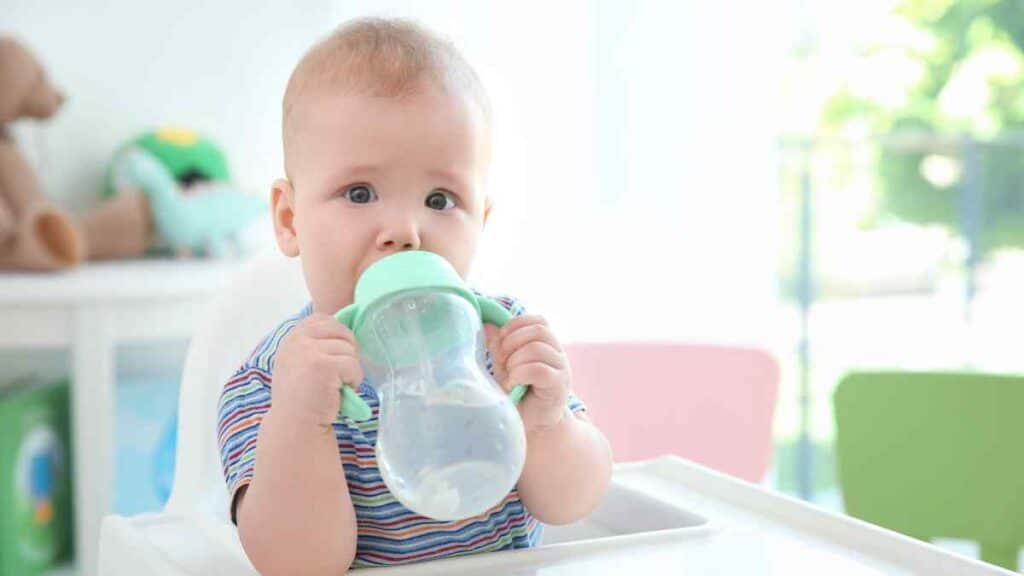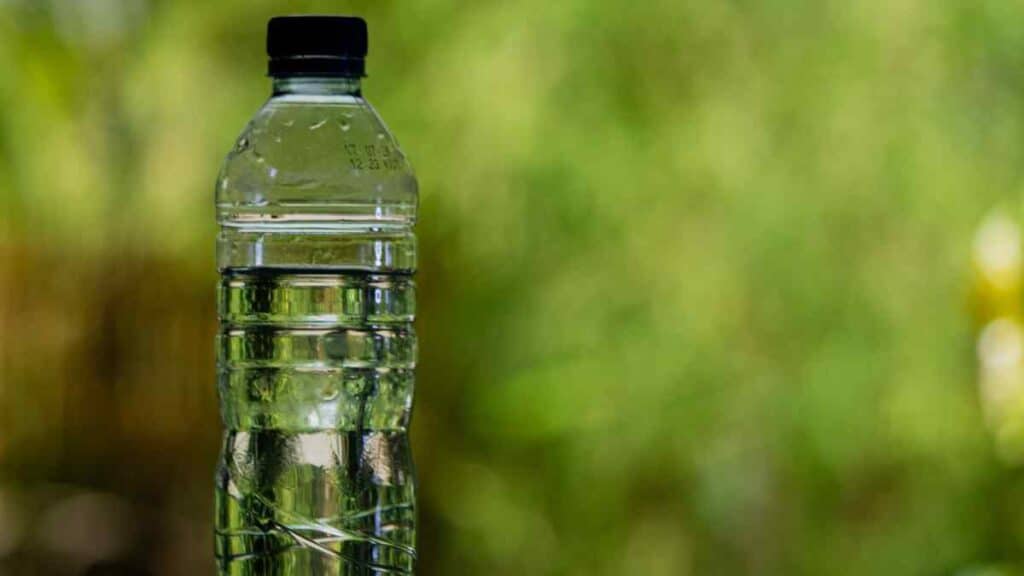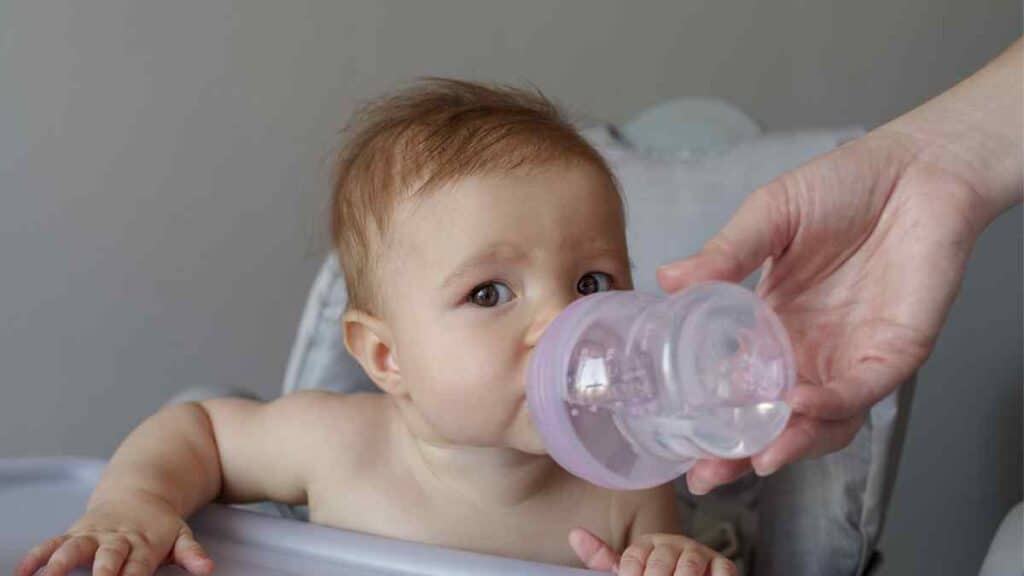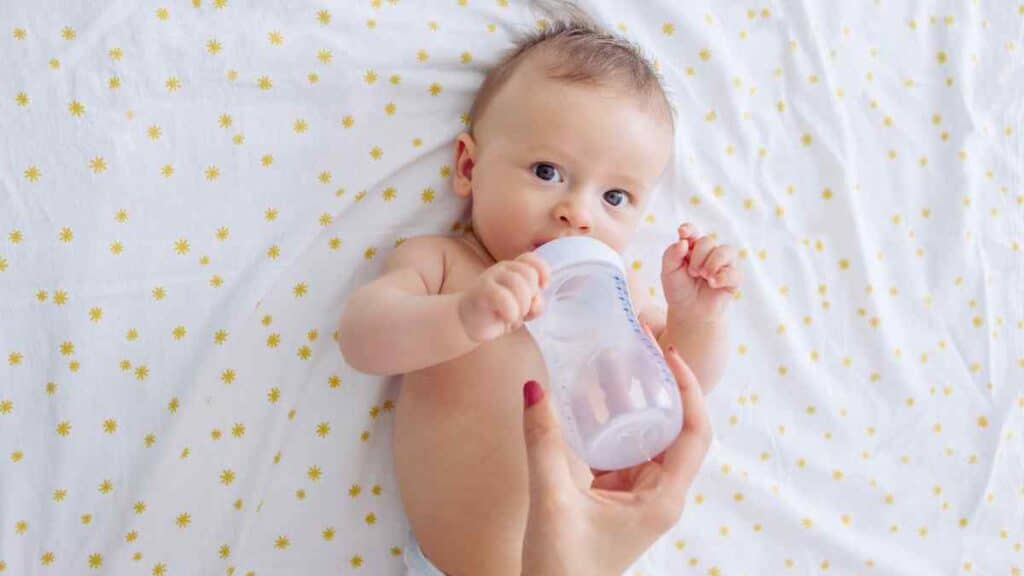The early years of a child’s life are instrumental in their overall growth and development, and every aspect of their care contributes to their well-being. One factor that often gets overlooked is the importance of using safe drinking water for babies. As the elixir of life, water plays a significant role in our daily routines and overall health. However, its purity becomes even more crucial when it comes to infants. It holds true, especially those whose underdeveloped immune systems make them particularly susceptible to diseases from contaminated water.
This article will delve into the significance of providing your little ones with safe and clean water- from preparing their meals to their everyday hydration. We aim to equip new parents, caregivers, and even experienced ones with vital information about the potential risks associated with unsafe water. Even more, we aim to provide practical tips to ensure your baby’s water is free from harmful contaminants.
Understanding the potential impacts of unsafe water on your baby’s health and growth. Even more, adopting the best practices for water safety can contribute significantly to your child’s healthy development. So, let’s dive in and explore the importance of this essential, yet often overlooked, component of baby care.

A Basic Guide to Understanding Baby’s Unique Needs
Understanding the unique needs of your baby when it comes to hydration is vital. Babies have a developing immune system, making them more susceptible to contaminants that can be present in drinking water. As a result, the water you give your baby — whether it’s used for making baby formula or offered as a few sips — must be safe and free from harmful elements.
According to the World Health Organization and the American Academy of Pediatrics, breast milk or formula should be the primary source of nutrition for babies under six months of age. Breastfed babies usually get all the hydration they need from breast milk. Yet, there are scenarios where additional water is necessary, for instance, in the case of illnesses or high temperatures. When babies start eating solid foods, usually around 6 months, a few sips of water can complement their diet, assisting digestion and preventing constipation.
Ensuring healthy hydration for your infant means giving them access to safe water for babies. Tap water, depending on your location, can contain dissolved minerals and contaminants posing a potential risk. The Centers for Disease Control and Prevention (CDC) warns that tap water can contain lead, especially in homes with older plumbing systems. Thus, which can pose an increased risk to developing babies.
When preparing infant formula, the type of water used is crucial. The most recommended drinks are purified or distilled water, with both processes aiming to remove contaminants. However, they differ in their methods. Purification typically uses a chemical or physical process (like carbon filtering or reverse osmosis) to remove impurities. In contrast, distillation involves boiling the water and collecting the steam, which is then condensed back into drinking water. This process leaves most contaminants behind.
Deciding between purified vs distilled water for baby formula depends on individual factors. Distilled water for babies is often recommended because of its higher purity level. However, purified water can also be safe if properly treated. It’s important to note that both distilled and purified water lack fluoride, a mineral that can help prevent tooth decay. Some brands of ‘nursery water’ offer fluoride-added options if this is a concern.
The Role of Water in Infant Nutrition
Water plays an integral role in infant nutrition, starting from birth. It is a crucial component of breast milk and baby formula, which provide all the hydration and nutrients a baby needs in the first few months of life. Besides nutrition, water helps regulate a baby’s body temperature. Even more, it also aids in digestion, and contributes to the overall health of a baby.
Breast milk is often referred to as the ‘gold standard’ for infant nutrition. It is naturally balanced to meet the nutritional needs of an infant and contains over 80% water. However, not all mothers can or choose to breastfeed, and baby formula serves as a nutritious alternative. Herein lies one of the first encounters with drinking water for a baby. The safety of the tap water used to mix formula becomes paramount, given the potential presence of environmental contaminants.
The American Academy of Pediatrics (AAP) emphasizes the importance of clean, safe water for babies when it comes to ormula preparation. It holds true, considering infants’ delicate systems are particularly susceptible to environmental contaminants, including lead, bacteria, and endocrine-disrupting chemicals. Any contamination can adversely impact pediatric environmental health.
Choosing the best water for baby formula often brings up the question: purified vs distilled water? While both purified and distilled water undergo processes to remove contaminants, they are not exactly the same. Purification removes chemicals and pathogens. Meanwhile, distillation involves boiling the water and collecting the steam, which eliminates a broader range of contaminants. Both types can be used for baby formula. However, if the tap water in your area is known to be heavily contaminated, distilled water might be a safer choice.
Can babies drink purified water? Can they have distilled water? According to AAP guidelines, babies should ideally not drink water by themselves until they start eating table food, usually around six months of age [1]. But when they do begin to need more than what breast milk or formula provides, the water they drink must be safe. Both purified and distilled water, including specific ‘baby water’ products, can be suitable for baby consumption. That’s because they meet the maximum contaminant levels set for drinking water.
The question of fluoride often comes up in discussions about baby water. Fluoride in moderate amounts helps prevent tooth decay, but excessive intake can cause dental issues. Some parents prefer using fluoride-free water for their infants. However, the AAP maintains that fluoride in water is safe for babies and can help protect their teeth as they grow.
When making choices about what’s considered as safe water for babies, it’s essential to consult with a healthcare professional who understands your local environmental health conditions and can provide guidance suitable to your baby’s needs. Whether it’s tap water, purified, or distilled, ensuring it is free of contaminants is key to supporting your baby’s health and growth.
Can Babies Drink Distilled Water Themselves?
The American Academy of Pediatrics suggests that occasional use of distilled water (without additional supplementation) is fine. However, if used exclusively, it could lead to mineral imbalances due to a lack of dissolved minerals found in other water sources.
Water intoxication is a serious condition to be wary of while keeping your baby hydrated. Offering too much water to babies, particularly under six months old, can lead to this condition as their kidneys aren’t mature enough to excrete excess water effectively. Therefore, when introducing water when the baby starts table food, it should only be in small amounts.
As babies grow into older children, their water needs increase. They can have plain cool water, avoiding hot water or sports drinks, which contain unnecessary sugars. Fun cups can make this transition exciting! Remember, the aim is to ensure babies have enough access to safe water for babies to produce six to eight wet diapers a day, a good indicator they’re well-hydrated.
How Unsafe Water Affects Your Baby
Water is essential to all life forms, including our little ones. However, the quality of the water babies drink can significantly impact their health and development. In this column, we’ll delve into the implications of using unsafe water for babies and why it’s essential to ensure the purity of their hydration source.

Unsafe Drinking Water: The Hidden Danger
Drinking water contaminated with harmful substances can lead to various health complications. Babies, with their still-developing immune systems, are especially vulnerable. Microorganisms such as bacteria, viruses, and parasites are common water contaminants and can lead to diseases like gastroenteritis, cholera, and dysentery. Additionally, chemical pollutants such as lead can interfere with brain development and overall growth in children.
Even well water, which many consider safer than tap water, can sometimes be contaminated. Well water may contain higher levels of certain minerals, which, although generally not harmful to adults, may be problematic for babies.
The Impact of Unsafe Water on Growth and Development
The American Academy of Pediatrics emphasizes that proper hydration is critical for babies’ healthy growth. Ingesting contaminated water can lead to malnutrition if the child experiences recurrent waterborne illnesses, leading to stunted growth and developmental delays. Long-term ingestion of chemically contaminated water (such as lead-contaminated water) can also result in cognitive difficulties and behavioral issues.
Safe Water and Baby Formula
When mixing formula, it’s important to use safe water to ensure your baby isn’t consuming harmful contaminants. Can babies drink distilled water or purified water for this purpose? Yes, both these options are generally considered safe. They undergo processes to remove most contaminants. The choice between purified vs distilled water for baby formula often boils down to personal preference and availability.
Preventing Water Intoxication
While keeping your baby hydrated, especially when they start solids, is vital, offering too much safe water for babies can lead to water intoxication. This potentially life-threatening condition occurs when excess water dilutes the essential electrolytes in the baby’s body. Symptoms can include irritability, drowsiness, and in severe cases, seizures. Stick to breast milk or formula for babies under six months, and introduce small amounts of water when they start solids.
Ensuring Safe Hydration
Offering safe water to your baby doesn’t need to be complicated. Choose purified or distilled water for your little one, whether they’re just starting to sip from a fancy cup or are ready to gulp down a whole glass. Remember, the aim is not just to keep your baby hydrated, but to ensure that their source of hydration is safe and contributes to their healthy growth.
Ultimately, it’s always advisable to consult with a pediatrician regarding your baby’s specific needs. The safety of the water they drink plays a crucial role in their health and development, and it’s worth every effort to ensure its quality.
Safe Water for Baby Food and Formula Preparation

When it comes to feeding your baby, ensuring the safety of their nutrition is a top priority. This responsibility extends not only to the formula or food itself but also to the water used in its preparation. This article will highlight the importance of using safe water for baby food and formula and provide a guide on how to properly sterilize water for your baby.
The Need for Safe Water in Formula Preparation
The choice of water for formula preparation is crucial for your baby’s health. Tap water, while convenient, may contain lead, chemicals, and other contaminants harmful to infants. The American Academy of Pediatrics suggests that if you are concerned about your water source, using purified or distilled water can be a safer choice. Purified water undergoes a process to remove most impurities, and distilled water is boiled into steam and condensed back into water, leaving contaminants behind. Both purified and distilled water are fluoride-free, which is important if your child is getting enough fluoride from other sources.
How to Sterilize Water for Baby Food Preparation
Sterilizing water for baby food preparation is essential to ensure that it’s safe for your little one. Here’s a simple guide to doing it right:
1. Boil water: Regardless of the source (distilled, purified, or tap water), boiling can kill off any remaining bacteria or parasites that can be harmful to your baby [1]. Fill a pot with enough water for your needs and bring it to a rolling boil.
2. Cool the water: Allow the water to cool down naturally. Don’t put it in the fridge or add ice cubes, as rapid cooling can reintroduce bacteria.
3. Store properly: Once cooled, store the water in a sterilized bottle or container. Use the water within 24 hours to ensure its freshness.
Water and Baby Food Safety
When you start introducing solids to your baby, around the age of 6 months, water becomes part of their diet. The same rules apply — use sterilized, safe water to prepare their meals. If you’re using commercial baby food, consider the water content already in the food before offering more water to drink. Overhydration can lead to water intoxication in babies.
Remember, juice is not a substitute for water. While older children can have some juice, it’s best for babies to stick with breast milk or formula, and small amounts of water once they start solids. Always consult with your pediatrician about how much water your child needs at each stage of their development.
In conclusion, using safe water for baby food and formula preparation plays a crucial role in maintaining your child’s health. Always ensure you use sterilized water from a reliable source and keep track of your baby’s hydration levels to ensure they are getting just the right amount.

Conclusion
In conclusion, ensuring the safety of the water you provide for your baby is a non-negotiable responsibility. Whether it’s for mixing formula, transitioning to solid foods, or keeping your child hydrated, the water used plays a crucial role in your baby’s health and development.
From understanding the risks of unsafe water to following the right steps to sterilize water for baby food and formula preparation, every effort contributes to creating a safe and healthy environment for your child. As your child grows, their needs may change, and it’s important to adjust their hydration accordingly, always prioritizing the use of clean and safe water.
If you found this article helpful, please feel free to ask any questions in the comments below.



